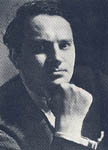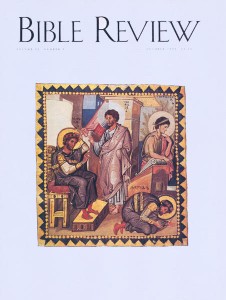Reaching Out to the 20th Century
For modern writers, Ecclesiastes speaks with special power to the human condition
Scores of contemporary artists and writers have used Qoheleth’s words as springboards for their own. They may truly be called children of the Preacher.

The American novelist Thomas Wolfe, in his last novel, You Can’t Go Home Again, wrote:
“I am not given to dogmatic judgments in the matter of literary creation, but if I had to make one, I could only say that Ecclesiastes is the greatest single piece of writing I have ever known, and the wisdom expressed in it the most lasting and profound.”
Ecclesiastes was number one on Wolfe’s list of influential books, ahead of Shakespeare, Milton and Tolstoy.
In a letter written toward the end of his life, Wolfe wrote:
“I have lately had a very thorough soaking in Ecclesiastes and that remarkable man … magnificently expressed what I have myself been almost thirty years in finding: I not only have nothing to add to what I found there, I even fall far short of the wisdom.”
Wolfe was not alone in his admiration for Ecclesiastes. Tolstoy himself, the author of War and Peace and Anna Karenina, regarded Ecclesiastes as the apex of biblical wisdom. George Bernard Shaw equated Ecclesiastes with works by Shakespeare. The Irish poet William Butler Yeats regularly quoted the Preacher.
Already a library member? Log in here.
Institution user? Log in with your IP address.

